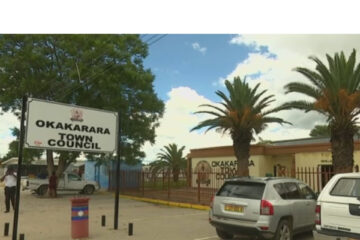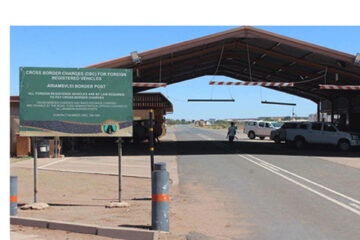Niël Terblanché
In an effort to strengthen Namibia’s efforts towards achieving zero hunger, the government of Brazil has donated N$2.16 million to the United Nations World Food Programme (WFP).
On Monday the WFP announced that the funding aims to support integrated community-based food systems programmes across five regions in towns like Tsumkwe, Gobabis, Stampriet, Opuwo, and Olukula.
Since 2020, the Brazilian Cooperation Agency (ABC) has collaborated with WFP to enhance productivity and combat hunger in these areas, directly benefiting over 300 smallholder farmers.
The programmes focus on improving household food and nutrition security, transforming the livelihoods of people in rural areas through increased food production, job creation, value-chain development, and creating sustainable food systems.
Tiwonge Machiwenyika, Acting Country Director of the WFP in Namibia, said the food systems initiative’s objectives are aimed at contributing to Namibia’s Zero Hunger efforts while enhancing household food and nutrition security, transforming rural livelihoods through increased production, job creation, value-chain development, and fostering sustainable, catalytic food systems.
He said the Brazilian funding has led to notable impacts in the five targeted communities, including job creation and capacity building.
“Over 100 smallholder farmers have received training in financial management, farm management, good agricultural practices, value addition, processing, and market readiness skills,” he said.
Vivian Loss Sanmartin, the Ambassador of the Federative Republic of Brazil to Namibia, spoke about the agency’s mission in Namibia.
“This is precisely the aim of ABC in each South-South cooperation project, to empower people by providing the tools to produce food, market their products, and establish successful models that can be replicated elsewhere,” she said.
She added that the Olukula Integrated Food Systems Project is an example of what these efforts are achieving like harvests exceeding five metric tons of vegetable produce and producing more than 65 000 eggs from poultry in 2024.
“This success has resulted in a 50 percent increase in local vegetable production,” she said.
She said that the project was also recognized as the first runner-up for the Emerging Producer of the Year Award at the Annual National Agronomy and Horticulture Awards hosted by the Namibia Agronomic Board in September 2024.
Namibia faces persistent socioeconomic challenges, including high unemployment rates and significant income disparities.
According to the 2024 Global Hunger Index, Namibia suffers from a serious level of hunger, ranking 86th out of 121 countries.
The country struggles with climate change, persistent droughts and erratic rainfall which are detrimental to agricultural productivity and food security.
The WFP has been instrumental in addressing these challenges, focusing on ensuring that people can meet their food and nutrition needs during crises, strengthening national social protection systems, and enhancing national food systems. Initiatives like the Rapid Rural Transformation promote rural development through agricultural production, livelihood diversification, skills development, and access to essential services.
Another project, the Home-Grown School Feeding Programme supplies schoolchildren with nutritious meals sourced from local smallholder farmers, enhancing children’s ability to learn while boosting market opportunities for local farmers.
Ambassador Sanmartin said the goal is to empower people by providing the tools to produce food, market their products, and establish successful models that can be replicated elsewhere.
She added that Brazil’s continued support is a demonstration of the strong partnership between Brazil, WFP, and the Government of Namibia in striving towards zero hunger.




